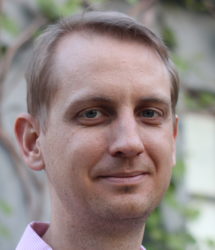At LSU and Harvard I have taught a range of courses on Germany, Central Europe, comparative genocide, migration, and European environmental history. Below I offer a detailed look at my teaching philosophy and experiences. You may also access my syllabi.
Teaching Background and Philosophy
You may also access a PDF version of my teaching portfolio.
Before I was an academic, I was a teacher. For two years I worked as a primary classroom instructor in Houston, Texas. Teaching second graders pushed me to hone skills like engaging diverse backgrounds, employing multi-sensory learning, and creating student-centered classrooms. These skills have carried over to my university teaching.
Above all, I aim to create a vibrant, interactive community of learners in which I work as a guide on a journey of self-discovery. Lectures can play a vital role in learning, but I feel that effective ones must be meticulously structured and paced. Each of my lectures begins with a set of interpretive questions, and then uses evidence to model how historians move from fact to interpretation. Multi-sensory learning is crucial. In my course on fascism, I began nearly every lecture with a relevant primary source video, such as Leni Riefenstahl’s Olympia or a historical newsreel, and hold a mini-discussion before segueing into the lecture’s themes. For more information on the content of my courses, please feel free to look through my syllabi.
In discussion and seminar settings, I aim to give students the proper guidance and leeway to reach their own conclusions. I strive to build an environment where students talk to, and learn from, each other, leaving me as a navigator. Extensive use of role-playing, presentations, group work, debates, and field trips helps me achieve these goals. Technology can also facilitate learning beyond the classroom. I have made use of blogs, peer reviews, Wikipedia editing, and Skype interviews with authors we read in class.
Promoting diversity is a key tenet of my teaching. I strive not only to engage diverse students, but to have all students benefit from diversity. It begins with course content. Students regularly read outside or excluded voices – those of London maidservants, Muslim French girls, or black Germans – to help decenter traditional narratives. It continues with creating a ‘safe space’ in the classroom: not a patrolled zone of comfort or consensus, but a place where all are challenged and unafraid to challenge others civilly. I regularly employ strategies such as small-group debates, pair-share, or blogging that nudge quieter students to share their ideas with confidence.
High-quality teaching also means continually improving, through mid-semester evaluations, syllabi revisions, or new assignments. Before I was a historian, I was an educator, and I will always treat teaching as a vocation demanding continual professional development and self-improvement.
Teaching Evaluations
Students have been generous in rating my teaching. In nearly all classes I have met or exceeded departmental and college averages. At both Harvard and LSU, I have earned awards for undergraduate teaching. Here are numerical evaluations and student comments gathered from anonymous end-of-semester evaluations.

Student Comments:
“I loved this course from beginning to end. The material was absorbing and important; the readings diverse and illuminating; and Professor Karch was a masterful, inspiring lecturer. This was one of the absolute best history courses I’ve taken in four years at Harvard. I’m so pleased to have had the chance to study with Professor Karch during my final semester; I only wish I could do it again.” (Hist 1256)
“Dr. Karch was exceptional in his approach to instructing the students on the sensitive and controversial subjects covered in this course… Additionally, I enjoyed the “essay and discussion” structure of the course, as it gave the student the ability to research and formulate their own opinions and then present those ideas in an academic forum. Lastly, Dr. Karch’s feedback in grading the essay assignments was thorough, constructive and beneficial.” (Hist 2030)
“Professor Karch is one of the best professors I have ever had at Harvard. He is very smart and generated really interesting discussion with just a few questions for us. He also was really good about guiding us through the enormous amount of reading we had by giving a brief rundown of what to focus on. I sincerely hope he receives tenure in due time because the History Department needs professors like this.” (Hist 72j)
“Professor Karch was an absolute star! … Each lecture was like a perfectly formed little nugget of history that could have stood on its own. In total, all of his lectures formed a complete, comprehensible corpus on the origins and nature of European fascism. The fact that I could effectively prepare for our final exam simply by re-reading my lecture notes is a testament to Professor Karch’s lucidity and attention to the ‘big-picture’ in his presentations. Professor Karch was a confident and capable lecturer–able to advance his argument and hold our attention while referencing maps, graphs, and images with aplomb. … His deep knowledge of the material, his thorough preparation, and the thoughtful questions he posed made this course a satisfying intellectual experience and an all-around pleasure.” (Hist 1256)

